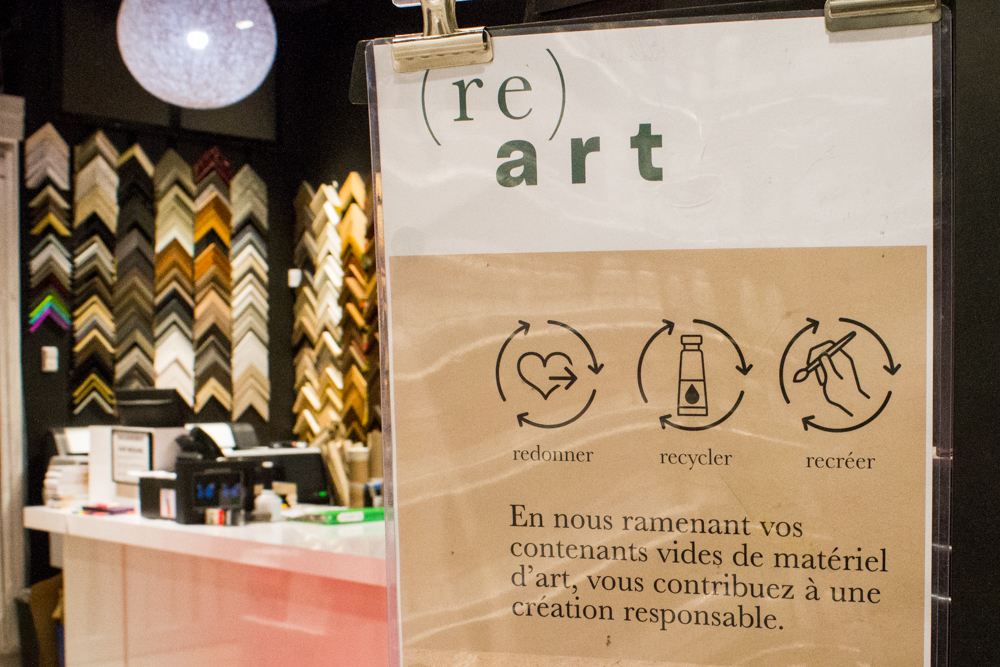How fine arts students can contribute to a circular waste system
With sustainability and climate action becoming an increasingly omnipresent factor in everyday life, the ways in which we must change our habits in an effort to become more environmentally conscious are becoming more apparent.
We’re taking the steps to reduce plastic waste and taking to the streets to protest for climate change, so why do we stop where our individual practices are concerned? For those invested in climate action, making art can feel restrictive. There is no doubt that creating is wasteful: paper, paints, brushes and canvases are discarded freely when they no longer serve a purpose.
While certain student groups, such as Concordia University’s Centre for Creative Reuse (CUCCR), are making an effort to implement sustainable practices, not everyone in the Greater Montreal community can access these resources. We asked the Fine Arts Student Alliance (FASA) if they had any comments or upcoming plans regarding sustainability and they refused to comment on the matter.
Currently, CUCCR diverts waste from within Concordia, and offers it to students free of cost. These materials include everything from wood to office supplies, and have helped avert approximately 14 tonnes of materials from waste.
CUCCR coordinator, Arrien Weeks, is researching how Concordia’s Fine Arts departments is teaching sustainability for his Masters in Art Education, and a team of CUCCR’s artists-in-residence are working on developing a sustainable-painting workshop, as well as several other sustainable-oriented skillshares, in the near future. Paint poses a particularly interesting conversation because of it’s very materiality. Oil paint can be toxic and acrylic paint becomes plastic when it dries, making proper at-home disposal impossible.
Recently, art supply store DeSerres introduced a new recycling program in partnership with TerraCycle that could solve this problem. TerraCycle is a volunteer-based recycling program, with a focus on collecting hard-to-recycle items, such as razors. Instead of discarding waste, they reuse and upcycle it to create a circular waste system rather than a linear one.
The program, titled “(Re)Art,” was created in an effort to instill sustainable practices into the art-making process and allow artists to create freely. Described as a “social responsibility program,” the DeSerres (Re)Art motto is “give back. recycle. recreate.”
Student artists looking to recycle their materials can do so by visiting a participating DeSerres store, to place their items in the “(re)art recycling box.” Accepted items include paint containers, paint brushes, markers and pencils. Locations in the downtown Montreal area include Alexis Nihon and Ste. Catherine E.
The CUCCR Used Material Depot is located at the GN building, at 1200 Guy St., and The Shed is located at the Hall building, at 1455 de Maisonneuve. For information regarding their hours, events and workshops visit www.cuccr.ca.
Further information about the (Re)Art program and participating DeSerres locations can be found at www.deserres.ca/en/reart-program.
More information about TerraCycle can be found at www.terracycle.com.
And finally, for more information about Montreal’s sustainable resources, consult this map, created by past CUCCR intern, Caroline Alince.
Photo by Britanny Clarke.
